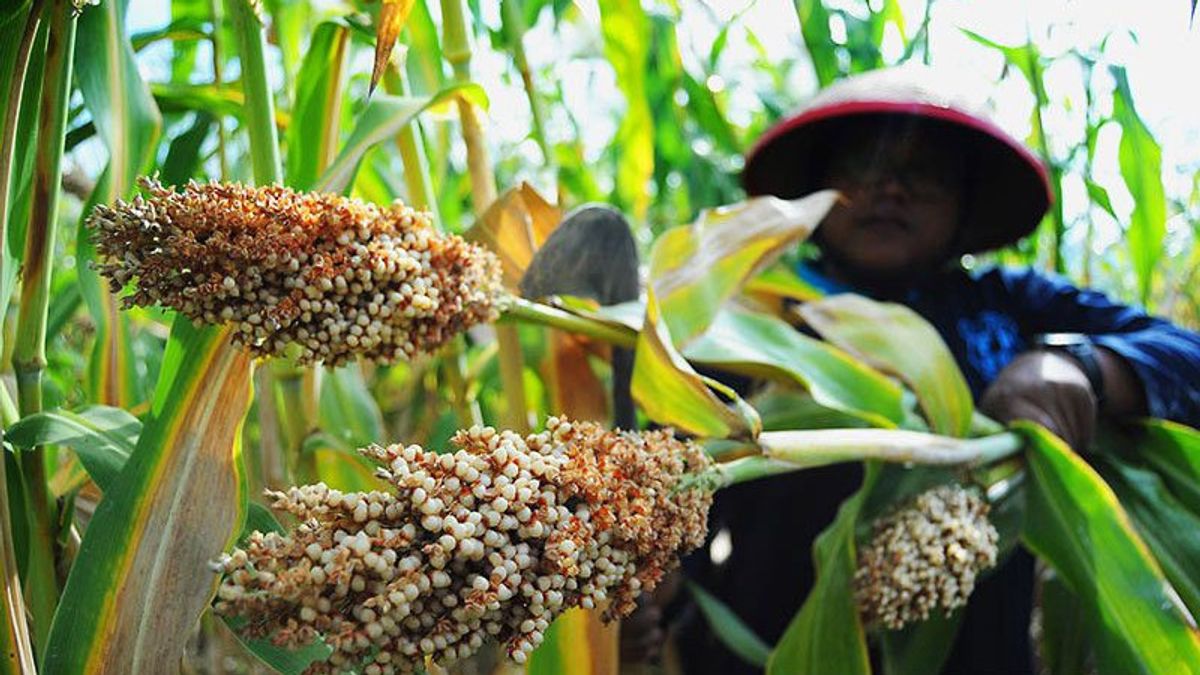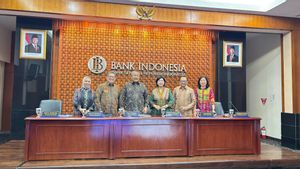JAKARTA - The Director General of Food Crops of the Ministry of Agriculture, Suwandi, said that the provision of local food, such as sorghum, could free Indonesia from dependence on imported food products.
Suwandi in his statement received in Jakarta, Thursday, said that there were two steps taken to deal with the threat of a food crisis. Two steps were taken, namely, strengthening the production capacity of local food crops and also diversifying the production and consumption of local food crops.
"Japan and Korea are strong because they love their production. Don't buy other people's products. Buy our farmers' products," said Kelvin, quoted from Antara, Thursday, August 11.
Indonesia currently relies on imports of wheat from abroad which are processed into noodles and bread as an alternative to the main staple food, namely rice.
For this reason, various local food crops that have the potential to be substitutes for wheat include cassava, sorghum, sago, sweet potato, taro, and others.
The Ministry of Agriculture is currently intensifying the expansion of sorghum production because it has the closest resemblance to wheat.
In addition, sorghum is also easily cultivated on land that is not fertile, even barren. Sorghum is also still a relative with wheat in scientific naming.
"The advantage of sorghum is that once you plant it, it can be squeezed twice. That is, you can harvest three times a year with one planting season," he said.
Field Agricultural Extension Officer of Lamongan Regency, East Java, Esti Fauziah added, sorghum does not require much preparation before planting.
"Even on rocky soil, sorghum can grow well. Unlike rice, which requires a lot of water, it requires tillage," he said.
Based on data from the Directorate General of Food Crops, the distribution of sorghum plantations is mostly in East Nusa Tenggara and West Nusa Tenggara with productivity ranging from 3 to 4 tons per hectare.
Meanwhile, in Central Java and East Java, productivity reaches 4 to 5 tons per hectare.
The total area of sorghum land in the entire region reaches about 15,000 hectares.
Acting Deputy for Food Availability and Stabilization of the National Food Agency, Risfaheri, assessed that all Indonesian local food crops have the potential to strengthen domestic food security while reducing dependence on imported wheat.
"Imagine if we could substitute 10 to 30 percent of the existing flour," he said.
Currently, Indonesia's wheat imports reach around 11 million tons per year.
However, Risfaheri admits, sorghum flour or other local food flours do not contain gluten, which expands like wheat flour. This can be circumvented by food technology.
"Perhaps researchers can engineer our food commodities that don't have swelling properties, maybe they can be inserted like substances that can make them expand," he said.
The English, Chinese, Japanese, Arabic, and French versions are automatically generated by the AI. So there may still be inaccuracies in translating, please always see Indonesian as our main language. (system supported by DigitalSiber.id)













